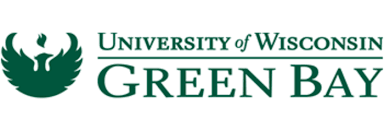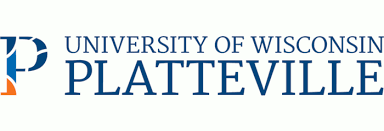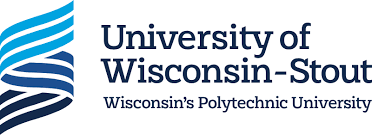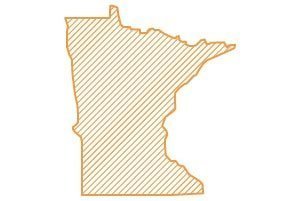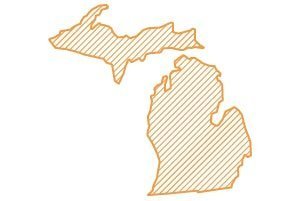Are you ready to start a career in the fast-growing field of cybersecurity? Wisconsin offers respected bachelor’s, master’s, and doctoral programs designed to prepare students for high-demand roles in government, business, and technology.
Many of these programs are accredited by the Higher Learning Commission (HLC) and recognized as National Centers of Academic Excellence (CAE) in Cybersecurity, ensuring strong academic quality and alignment with industry standards. This guide will help you find the best cybersecurity degree programs in Wisconsin and understand the key factors to consider when choosing the right path.
Fast Facts for Wisconsin
- Explosive Job Growth: Cybersecurity roles in Madison are projected to grow 32.7% through 2033.
- High Demand: Wisconsin’s supply-to-demand ratio is 95%, leaving strong opportunities for new talent.
- Competitive Salaries: Entry-level salaries start at $87,125, averaging $105,300, and can reach $132,375 with experience.
- Key Skills in Demand: Network security, intrusion detection, risk assessment, ethical hacking, and cloud security.
- National Shortage Impact: With 3.5 million unfilled cybersecurity jobs worldwide by 2025, Madison’s job market is directly benefiting from this talent gap.
State Overview & Landscape
Wisconsin offers a growing and well-supported cybersecurity education ecosystem. Across the state, there are approximately eight institutions offering degrees or certificate programs recognized as NSA National Centers of Academic Excellence (CAE-CD or CAE-R), including UW–Madison, UW–Stout, UW–Stevens Point, UW-Whitewater, and Herzing University. Additionally, 11 institutions are offering cybersecurity-related associate degree programs.
Program formats in Wisconsin are diverse, available on-campus or fully online, offering flexibility for working and traditional students alike.
All programs listed meet Wisconsin’s education standards and, where applicable, satisfy requirements for roles in federal cybersecurity positions and other regulated industries through CAE and HLC accreditation.
Affordable Master’s in Cybersecurity Programs List
We selected these programs based on academic quality, affordability, and strong career outcomes. Each program is offered by a regionally accredited public university in Wisconsin and provides flexible online formats designed for working professionals. Programs highlighted here are accredited by the Higher Learning Commission (HLC) or recognized through the National Centers of Academic Excellence in Cybersecurity (CAE-CD), ensuring rigorous standards and alignment with industry needs.
University of Wisconsin – Green Bay
- Green Bay, Wisconsin
- 34 hours
- Online
Program:
Master of Science in Cybersecurity
Modality: Online
Things to Consider:
- 100% Online
- 12 Courses
- GRE/GMAT not required
Length: 34 credit hours
Tuition:
- In-State: $850 per credit hour
- Out-of-state: $850 per credit hour
Accreditation: HLC
Why We Picked This Program:
Ranked #1 in Green Bay and #10 in Wisconsin, the University of Wisconsin’s Master of Science in Cybersecurity stands out for its flexibility and strong career alignment.
- Collaborative program taught by faculty from multiple UW campuses, giving students access to a wide range of expertise
- Four specialization tracks to tailor learning: Digital Forensics, Cyber Response, Governance & Leadership, and Security Architecture
- Hands-on curriculum covering core cybersecurity skills plus applied capstone work
- Student support model with success coaches and faculty engagement throughout the program
University of Wisconsin – Whitewater
- Whitewater, Wisconsin
- 30 hours
- Online
Program:
Master of Science in Cybersecurity
Modality: Online
Things to Consider:
- 100% Online
- Asynchronous program
- GRE/GMAT required
Length: 30 credit hours
Tuition:
- In-State: $708 per credit hour
- Out-of-state: $708 per credit hour
Accreditation: CAE-CD
Why We Picked This Program:
Drawing on faculty from both the information technology and the computer science programs at UW-Whitewater, the Master of Science in Cybersecurity is an interdisciplinary degree that will allow students to develop deep expertise in current cybersecurity issues.
- All courses in the program are focused on cybersecurity
- Curriculum has been designed to align with the National Centers of Academic Excellence (CAE) program
- Build connections through online assignments and discussion boards
- Strong alumni network
- AACSB Accredited – 50 years of continuous accreditation
ABET + CAE Accredited Master’s in Cybersecurity Programs List
These programs were selected for their strong academic reputation and career-focused outcomes. Offered fully online by accredited Wisconsin universities, they provide flexible pathways for working professionals. Each is accredited by the Higher Learning Commission (HLC), with several also holding the prestigious CAE-CD designation in cybersecurity.
University of Wisconsin – Platteville
- Platteville, Wisconsin
- 34 hours
- Online
Program:
Master of Science in Cybersecurity
Modality: Online
Things to Consider:
- 100% Online
- Three yearly start dates (Summer, Spring, and Fall)
- Spring and fall semesters are each 16 weeks, while the summer semester is 12 weeks
- Scholarships and Financial Aid Available
Length: 34 credit hours
Tuition:
- In-State: $850 per credit hour
- Out-of-state: $850 per credit hour
Accreditation: CAE-CD
Why We Picked This Program:
The University of Wisconsin – Platteville’s MS in Cybersecurity offers a strong balance of affordability and flexibility, making it an attractive option for working professionals. Its specialized tracks and multi-campus collaboration provide both depth and breadth in cybersecurity education.
- Four specialization tracks (Digital Forensics, Cyber Response, Governance & Leadership, Security Architecture)
- Capstone project UW Extended Campus collaboration ensures access to diverse faculty expertise across the UW System
University of Wisconsin – Stevens Point
- Stevens Point, Wisconsin
- 34 hours
- Online
Program:
Master of Science in Cybersecurity
Modality: Online
Things to Consider:
- 100% Online
- Asynchronous program
- Three yearly start dates (Summer, Spring, and Fall)
Length: 34 credit hours
Tuition:
- In-State: $850 per credit hour
- Out-of-state: $850 per credit hour
Accreditation: HLC
Why We Picked This Program:
Ranked #7 in Wisconsin, the UW–Stevens Point Master of Science in Cybersecurity stands out for its flexible online format, strong specialization options. and real-world relevance.
- Four specialization tracks: Digital Forensics, Cyber Response, Governance & Leadership, Security Architecture
- Curriculum combines core courses, electives, and a capstone project
PhD in Cybersecurity Programs List
We selected this Ph.D. program based on academic quality, research opportunities, and career outcomes. Offered by the University of Wisconsin – Madison, it is accredited by the Higher Learning Commission (HLC) and provides advanced research pathways in computer science with specialization opportunities in various fields.
University of Wisconsin – Madison
- Madison, Wisconsin
- 51 hours
- Campus
Program:
Computer Sciences, PhD
Modality: On-Campus
Things to Consider:
- On-campus program only; no online option.
- Required rigorous milestones: breadth coursework, qualifying exams, preliminary oral exam, and dissertation defense.
- No transfer of graduate credits allowed.
- Highly competitive admissions.
- GRE is optional.
Length: 51 credit hours
Tuition:
- In-State: $672 per credit hour
- Out-of-state: $1,505 per credit hour
Accreditation: HLC
Bachelors in Cybersecurity Programs List
These bachelor’s programs were chosen for their strong academics, recognized accreditation, and career-focused outcomes. Each is accredited by the Higher Learning Commission (HLC) or designated as a National Center of Academic Excellence in Cyber Defense (CAE-CD). Program details and tuition are drawn from official university sources, with no sponsored listings included.
Herzing University
- Menomonee Falls, Wisconsin
- 120 hours
- Online
Program:
Cybersecurity – Online Bachelor’s Degree Program
Modality: Online
Things to Consider:
- 100% Online, Self-Paced
- Program Length: 32 Months
- Scholarships and Financial Aid Available
Length: 120 credit hours
Tuition:
- In-State: $515 per credit hour
- Out-of-state: $515 per credit hour
Accreditation: HLC
Why We Picked This Program:
Ranked among the best online bachelor’s programs by U.S. News & World Report in 2025, Herzing’s Cybersecurity bachelor’s program offers a career-ready curriculum, designed for flexibility and continuity toward advanced degrees.
- Career-focused curriculum, covering essential topics like incident response, ethical hacking, AI/ML, and digital forensics
- Certification preparation is built-in, including industry-recognized credentials from Cisco, CompTIA, and others
- QuickPath options are available for dual credit toward a Master of Science in Cybersecurity, creating an accelerated pathway
University of Wisconsin – Stout
- Menomonie, Wisconsin
- 30 hours
- Campus
Program:
B.S. Cybersecurity
Modality: On-Campus
Things to Consider:
- On-Campus only.
- Top 25 Best Cybersecurity Degree Programs in the U.S.
Length: 30 credit hours
Tuition:
- In-State: $244 per credit hour
- Out-of-state: $530 per credit hour
Accreditation: CAE-C
Why We Picked This Program:
Ranked #12 in Wisconsin, the University of Wisconsin–Stout’s Bachelor of Science in Cybersecurity stands out for its balance of technical rigor and hands-on experience.
- Embedded industry certifications (CyberOps, CCNA, AWS, CEH, etc.)
- Curriculum includes labs, internships, and industry-sponsored capstone projects
- Strong employer connections: Cisco, NSA, U.S. Bank, and others
- Flexible pathways, including transfer options (up to 90 credits)
- Develop Hands-On Experience in Cyber Defense Scenarios, Ethical Hacking Exercises, Secure Software Development Practices, Digital Forensics Techniques, and Generative AI in Cybersecurity
Salary & Career Outlook in Wisconsin
The BLS table below highlights the key occupations:
| Occupation | Employment | Employment percent relative standard error | Annual median wage | Employment per 1,000 jobs | Location Quotient |
|---|---|---|---|---|---|
| Computer Systems Analysts | 7,710 | 12.1 | $98,790 | 2.636 | 0.82 |
| Information Security Analysts | 1,760 | 8.0 | $99,210 | 0.602 | 0.52 |
| Computer and Information Research Scientists | 30 | 40.1 | $166,690 | 0.012 | 0.05 |
| Computer Network Architects | 2,220 | 7.8 | $121,060 | 0.759 | 0.66 |
| Database Administrators | 1,380 | 8.8 | $98,920 | 0.473 | 1.00 |
| Database Architects | 360 | 8.4 | $138,930 | 0.123 | 0.29 |
| Network and Computer Systems Administrators | 7,960 | 5.7 | $82,780 | 2.721 | 1.32 |
Wisconsin is experiencing a significant rise in demand for cybersecurity talent. Employment for Information Security Analysts is projected to grow 29% from 2024 to 2034, far above the national average. Despite this growth, demand still outpaces supply. There is a shortage of approximately 4 million cybersecurity professionals, underscoring the urgency for new talent to enter the field.
Locally, Madison’s cybersecurity market is booming, with projected growth of 32.7% through 2033 and a supply-to-demand ratio nearing 95%, indicating strong opportunities for qualified professionals.
Local Employers Spotlight:
- Epic Systems (Madison): Actively recruiting cybersecurity professionals, particularly in areas like network security and risk management.
- American Family Insurance (Madison): Offers roles in threat specialization, cybersecurity engineering, and defense strategy, with salaries ranging from $87K to $132K.
Frequently Asked Questions (FAQ)
1. Does Wisconsin accept out-of-state online degrees?
Yes, if the school is part of SARA (State Authorization Reciprocity Agreement).
2. Where can I earn cybersecurity certifications in Wisconsin?
UW–Stout and other UW campuses embed certifications like Cisco, CompTIA, and AWS.
3. Do these programs meet licensure or compliance needs?
Yes, CAE-designated programs align with federal and state standards, but always confirm with employers or boards.

